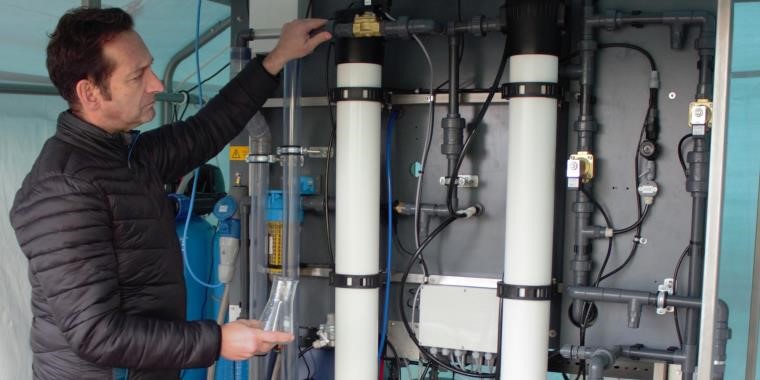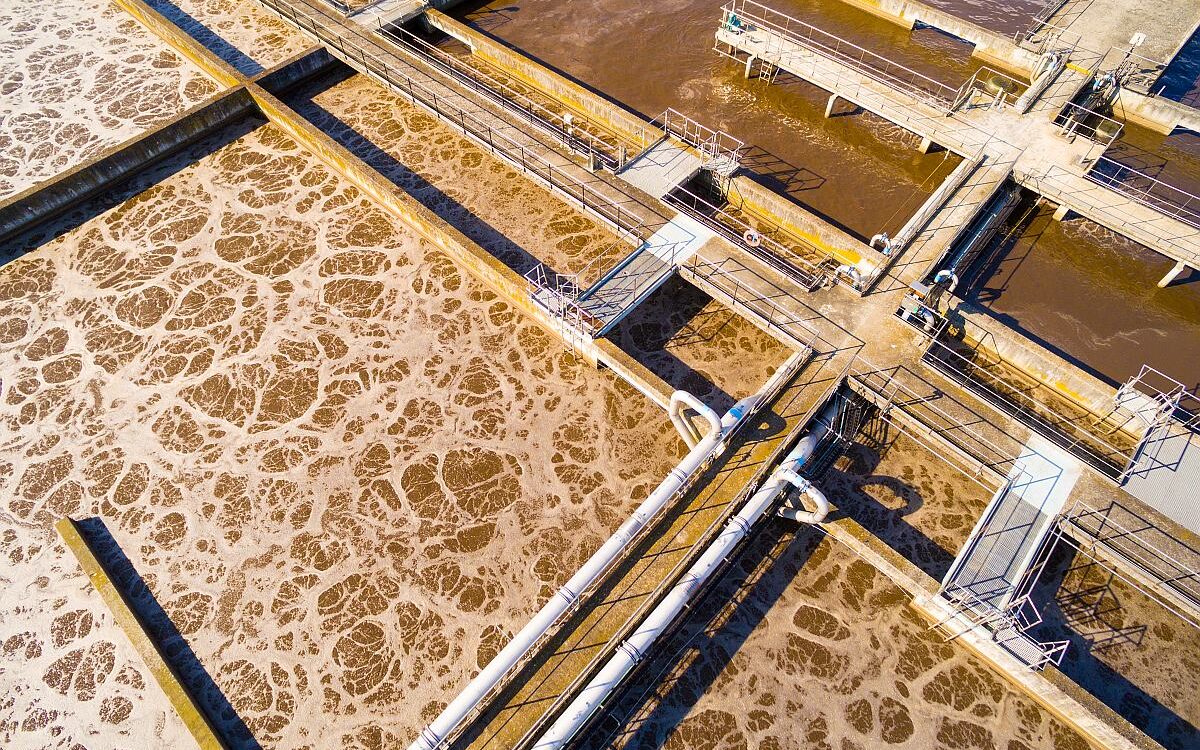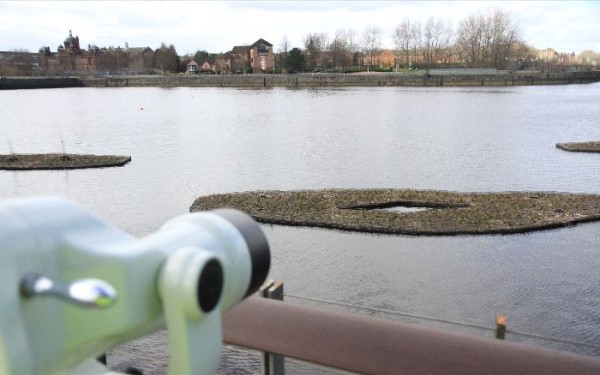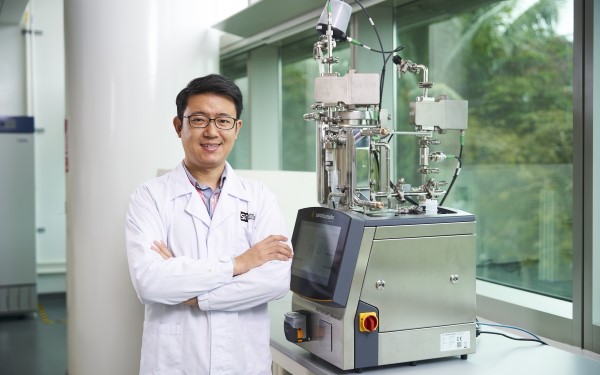Known as The Ninja, the 1.5m by 1.5m unit has the potential to quickly produce safe drinking water for decentralized communities, or those affected by humanitarian disasters. It uses an ultra-filtration system and electrochemically activated solutions that disinfect raw water, removing biological contaminants including bacteria and viruses, as well as reducing agricultural and industrial contaminants such as nitrates, ammonia and metals.
Trials are being conducted at Frenchay campus of UWE for three months, ahead of deployment in India next year for further testing. Initial tests have shown that the system is capable of transforming dirty water drawn from a pond into clean water meeting UK drinking water standards at a rate of 500 liters per hour.
The system is the culmination of 10 years’ work, having started as an academic research project. For developing the actual system, UWE Bristol has collaborated with industrial partner Portsnouth Aqua Ltd., which designs and manufactures the treatment systems.
Field trials in India
The unit will be put to test in freshwater catchments in India as part of an UK Research and Innovation project. The project will also see UWE Bristol researchers testing the quality and health of the River Ganges using a novel V-Lux sensor developed through a partnership between UWE Bristol and Chelsea Technologies Ltd. over the past ten years. The fluorescence sensor will monitor, in real time, the microbial activity of Indian freshwater sources to determine the dirtiness of the water that local communities rely upon.
Professor Darren Reynolds, lead scientist on the project, said: "With this treatment technology, we’re trying, in some small way, to help solve a big problem – that in the 21st century many people all over the world lack access to basic clean drinking water. The Ninja is an industrial-scale piece of equipment which can be easily transported overseas and used to help whole communities by producing clean, safe drinking water from dirty or contaminated sources at the touch of a button. We can even develop the system to be powered from solar panels if needed."
The three-year, £700,000 project is a collaboration with Professor Tapan Dutta from the Bose Institute in Kolkata. It comes as India faces increasing population pressures, particularly with exponential urbanization and industrialization, and environmental issues. The work is part of the India-UK Water Quality Programme, which aims to provide policymakers, regulators, business and local communities with information and solutions that will help them secure the provision of clean water, rejuvenate rivers and restore ecosystems.







